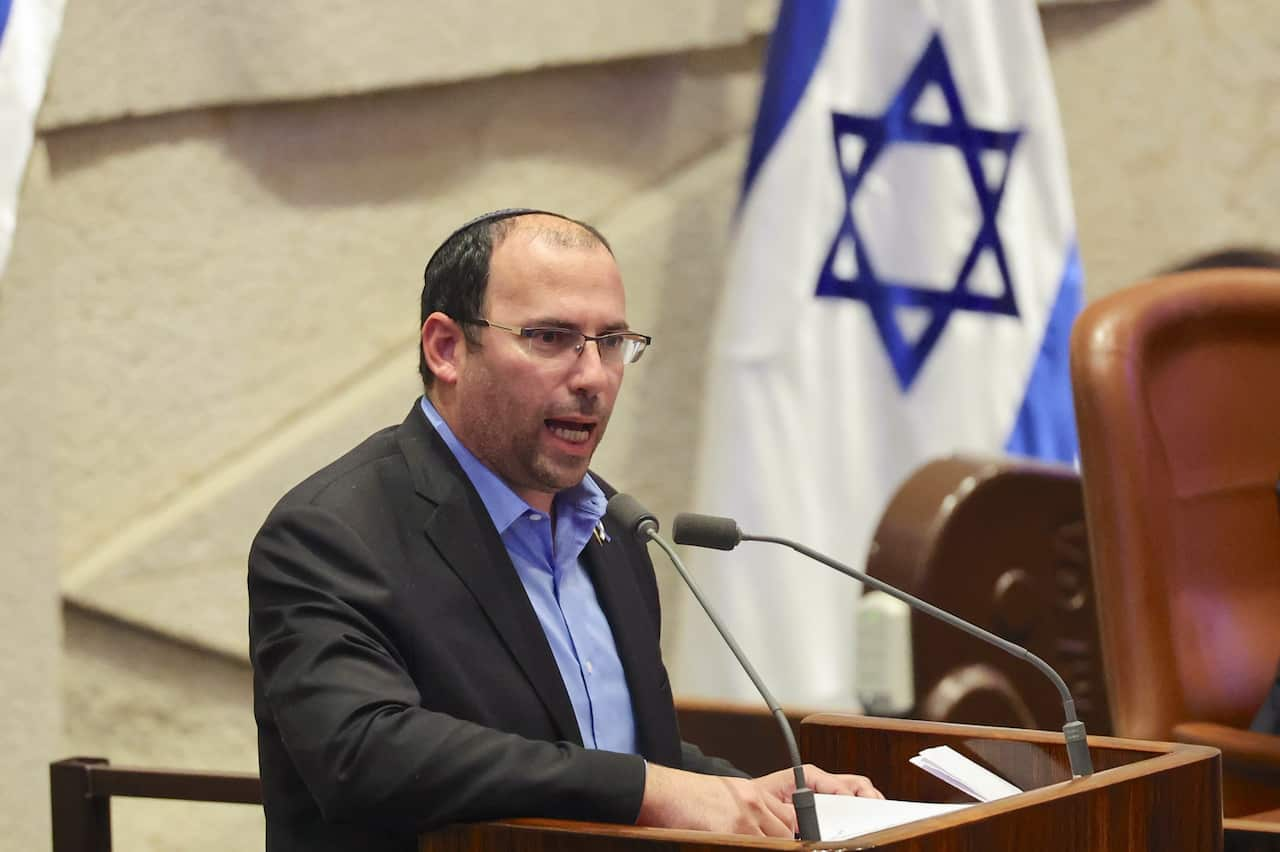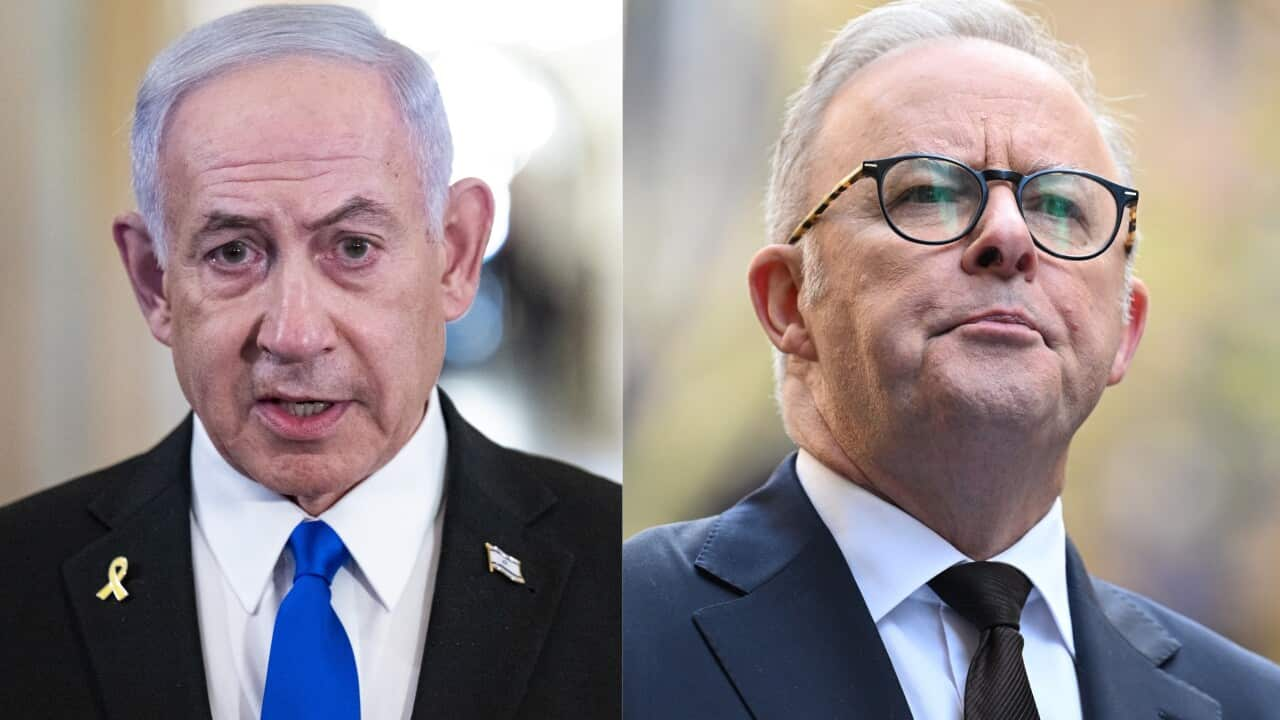Prime Minister Anthony Albanese says he won't take his Israeli counterpart's public scoldings personally, after Benjamin Netanyahu called him a weak leader and handed the Australian leader a deadline to change course amid an escalation of a diplomatic stoush between the two countries.
Some of Albanese's most senior ministers came to his defence on Wednesday, with Home Affairs Minister Tony Burke criticising Netanyahu's personal attack against Albanese on social media on Tuesday night, saying "strength is not measured by how many people you can blow up".
The Israeli leader had said in a post on X: "History will remember Albanese for what he is: a weak politician who betrayed Israel and abandoned Australia's Jews."
In a letter to Albanese, first reported by Sky News, Netanyahu scolds his Australian counterpart for "intensified" antisemitism "under his watch", saying the Albanese government's call for a Palestinian state "pours fuel on this antisemitic fire".
It calls on Albanese to "replace weakness with action, appeasement with resolve, and to do so by a clear date: the Jewish New Year, September 23," known as Rosh Hashanah.
The letter is similar to one also issued by Netanyahu to French President Emmanuel Macron on Tuesday, including the accusations around antisemitism and the ultimatum.
France called Netanyahu's allegation "abject and erroneous". "This is a time for seriousness and responsibility, not for conflation and manipulation," the French presidency added.
Responding to Netanyahu's public rebuke, Albanese on Wednesday said he wouldn't take the comments personally.
"I treat leaders of other countries with respect and I engage with them in a diplomatic way," he told reporters in Adelaide.
"I don't take these things personally. I engage with people diplomatically. He has had similar things to say about other leaders."
'Strength not measured by how many you can blow up'
Burke said the Israeli prime minister had "lashed out".
"Strength is not measured by how many people you can blow up or how many people you can leave hungry," he told ABC radio on Wednesday morning.
"Strength is much better measured by what Prime Minister Anthony Albanese has done, which is, when there's a decision we know Israel won't like, he goes straight to Benjamin Netanyahu."
Last year, the International Criminal Court issued an arrest warrant for Netanyahu, accusing him of holding criminal responsibility for alleged war crimes. Israel has rejected the accusations, which it says are politically motivated and fuelled by antisemitism.
Labor frontbencher Clare O'Neil said Netanyahu's remarks were "disappointing" but that the Australian government wasn't going to "get into a tit-for-tat" with Israel.
O'Neil said Albanese had been "unfailingly polite" with Netanyahu and other world leaders.
"I know the Israeli prime minister has had similar things to say about other global leaders with whom he has a disagreement," O'Neil told Channel Seven.
Opposition leader Sussan Ley said in a statement that Netanyahu's remarks were a "direct consequence" of Albanese "mismanaging international relationships".
"It is up to Anthony Albanese to explain how he is going to repair this relationship," she said.
Netanyahu's post came after Australia's decision to recognise Palestinian statehood and refuse entry to significant Israeli figures.
Israel responded by revoking the visas of a trio of Australian representatives to the Palestinian Authority.
'We've never felt abandoned'
Jewish leader Alex Ryvchin, from the Executive Council of Australian Jewry, said Australian Jews have not felt abandoned. He said it was important to preserve the relationship between the two countries.
"We've never felt abandoned, we've always felt like we can speak to the government and speak to the public of this country and make our case," he told reporters in Sydney.
"When allies speak, they should speak frankly, robustly but also in a dignified way. When I think firing off tweets which contain elements of abuse, I don't think that's the way to operate."
Burke defends visa denial for Israeli politician
Australia earlier had denied far-right Israeli politician Simcha Rothman entry into the country for a speaking tour after provocative comments, including branding children in Gaza as enemies.
Burke defended his decision on Wednesday, saying he'd make "no apology" for "being consistent".
"If anyone wanted to come on a public speech tour, and they had those views publicly expressed about Israeli children, I would block the visa," he told ABC radio.
"I am not going to have a lower bar for the protection of views that are bigoted views against the Palestinian people."

Opposition home affairs spokesperson Andrew Hastie said he didn't agree with Rothman's views, but that the decision to refuse his visa had damaged Australia's relationship with Israel.
"The relationship with Israel now is at an all-time low, and that's largely because of the Albanese foreign policy incompetence from this government," he told ABC radio on Wednesday.
In August, Albanese confirmed Australia's intention to recognise Palestinian statehood at the United Nations General Assembly meeting in September.
The decision came after more than 100,000 people marched across the Sydney Harbour Bridge to protest the war in Gaza.
Israeli Foreign Affairs Minister Gideon Sa'ar accused the Australian government of fuelling antisemitism as he announced the visa cancellations on social media on Monday.
— With additional reporting by the Australian Associated Press
For the latest from SBS News, download our app and subscribe to our newsletter.

